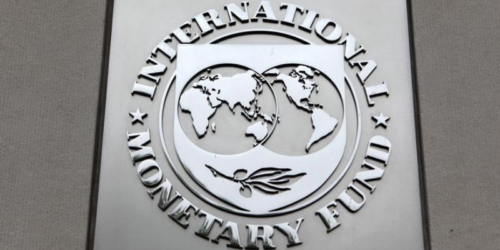Pakistan’s sovereignty ultimately depends on achieving financial freedom and self-reliance. We should not let near-term economic challenges cloud our long-term thinking and direction towards this goal. One key step towards achieving this goal is the creation of the Pakistan Sovereign Wealth Fund (PSWF).
A sovereign wealth fund will provide Pakistan with a mechanism to preserve and grow the nation’s wealth. Furthermore, it will arm the government with the financial cushion to stabilise the foreign exchange rate and close funding gaps during times of volatility and economic stress. PSWF allows Pakistan to become an investor in foreign capital markets and work with global co-investors. In a world where nations are primarily driven by economic motivations, PSWF will give Pakistan the international standing it deserves as well as leverage in global affairs.
PSWF will not be an overnight creation — it will deliver results over the long term and hence the groundwork must be laid now. In my view, the key gating items of setting up PSWF are identification of funding sources and putting in place an appropriate governance framework. Generating surplus funds for PSWF might seem virtually impossible given the current economic situation but there are clear avenues that need to be further explored.
These avenues include profitable state-owned enterprises (SOE) such as Oil and Gas Development Company Limited and Pakistan Petroleum Limited. In 2018-19, the top ten SOEs generated a combined profit of almost Rs300 billion. Overall, SOEs made a loss of Rs143bn in the same period. This shows massive subsidisation of inefficient and loss-making entities by the profitable ones. The profitable SOEs can become important contributors to PSWF.
Recoveries made by the National Accountability Bureau (NAB), Federal Bureau of Revenue (FBR) and State Bank of Pakistan (SBP) can also be routed to PSWF. In 2018-19, total recoveries made by NAB amounted to Rs137bn. Under current policy, the recovered funds flow into the budget without any investment mechanism and make up for low collection of taxes and income generation. The government has an active privatisation programme with the stated objectives — “retirement of debt, reduction in fiscal burden and improved efficiency”. There is a complete absence of an investment policy to generate economic benefits in the long term.
Additionally, as the SBP becomes increasingly independent, there is room for expansion of its investment policy so it can invest more actively in international markets potentially via PSWF. The foreign exchange reserves can be invested in PSWF subject to liquidity considerations. Public Private Partnerships such as the Ravi Riverfront Urban Development Project can play an important role in providing a source of funding as well as an investment opportunity for PSWF.
Sovereign wealth funds around the world invest heavily in local housing and infrastructure projects that can help generate quasi-predictable earnings. Setting a strong and efficient governance framework is crucial not only for the smooth functioning of PSWF as an organisation but also for its ability to attract co-investments from abroad. An optimal balance needs to be struck between government control and independence of the PSWF investment team.
The world’s newest sovereign wealth fund, Indonesia Investment Authority, is headed by a technocrat with thorough private sector background. By minimising political influence, Indonesia aims is to avoid loopholes that led to corruption in neighbouring Malaysia’s fund as well as provide external investors with transparency.
The Norwegian Government Pension Fund Global, the world’s largest sovereign wealth fund, is managed by a separate investment management firm Norges Bank Investment Management , a separate entity within the central bank reporting to the Ministry of Finance. Sovereign wealth funds with governance model towards the other end of the spectrum include Abu Dhabi Investment Authority (UAE) and Public Investment Fund (Saudi Arabia). These funds have strong government influence predominantly in areas of fund withdrawals and investment policy.
PSWF should have strong government oversight and role in its initial years but the long term objective should be for it to operate independently. Investment managers should be able to make decisions based on merit and without any apprehension of crimination by NAB or other authorities. That said, they must be accountable to the Ministry of Finance and Parliament.
Finally, PSWF should have a broad investment remit. Our current investment policy is too inward-looking and is deprived of higher and diverse returns that can be earned in international capital markets. As global investors, we can obtain better know-how of international best practices and advancements made by businesses.
The writer is a member of the PSWF Advocacy Group and is an adviser to governments, private equity investors and corporates on transactions in international equity capital markets







